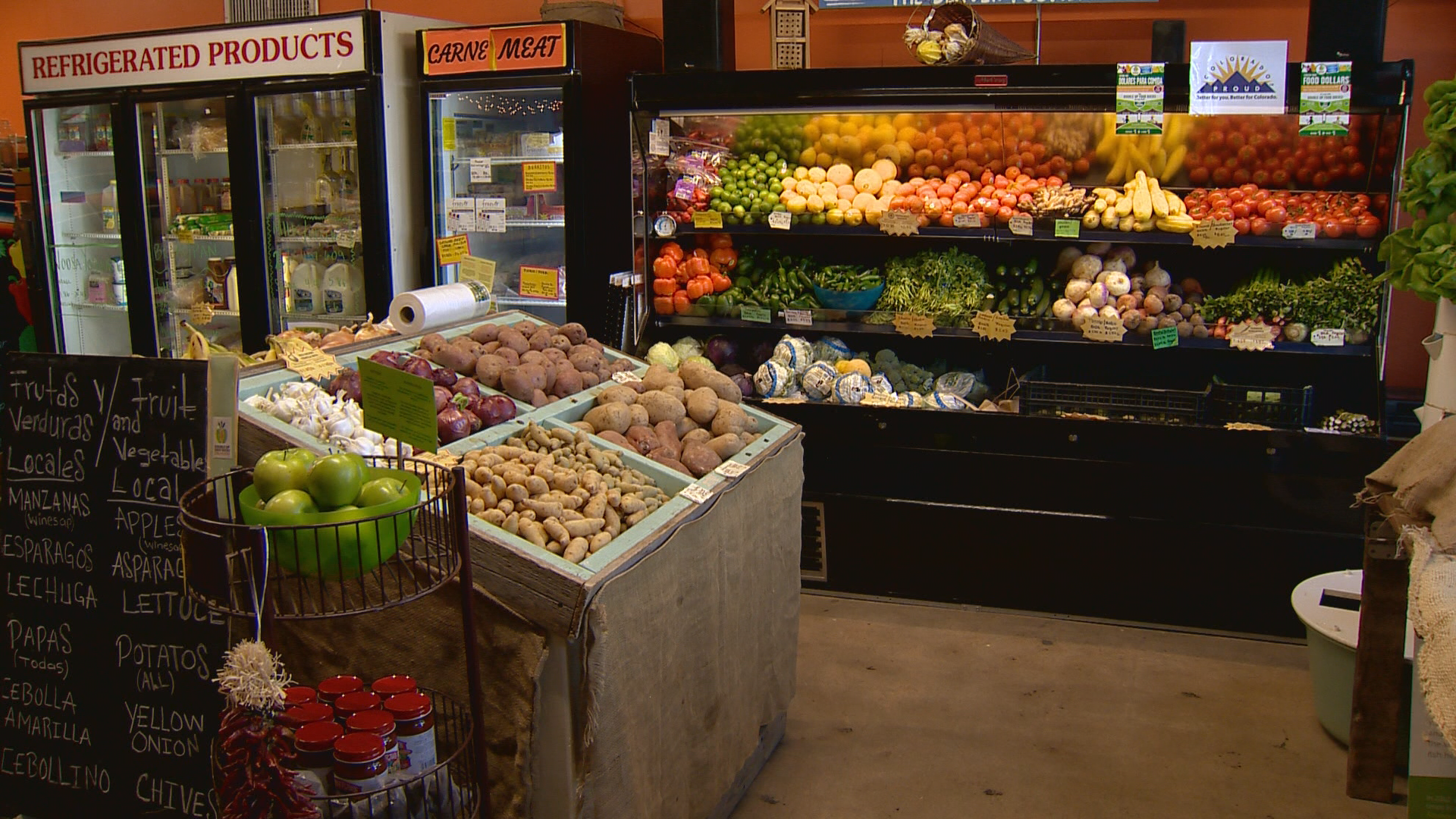For some living in Denver, the closest thing to a grocery store in many miles is the corner convenience store.
Several areas of the city are in what is known as a food desert, where fresh produce is scarce. For those without cars, healthy food rarely makes it the kitchen table.
The city has set aside money to help solve the problem, but even the city admits it may not be enough.
Swansea, Elyria and Globeville, collectively make up a community with more than 10,000 people in it.
In this area, there's a major issue: a lack of good healthy food options.
“There is a food desert and not a lot of groceries stores around where we can get fresh food,” Alicia Perez, a longtime resident of the community, said.
Perez grew up in Swansea, and says the only option for fresh produce close by is The GrowHaus, a non-profit indoor farm and marketplace.
“I get most of my groceries from The GrowHaus here and whatever I can't find I have to go search for it,” said Perez.
The GrowHaus has been part of the community since 2009.
It offers people fresh produce and meat, something they can't get at one of the corner stores in the area.
“We have a little market in front and every day we have residents coming in to shop in the market for their daily meals,” said Perez.
But it’s not enough.
The city set aside about $3 million from grants to help start the process of attracting a grocery store. So far, none have opened.
The director of The GrowHaus, Colby Gould, says the perception of this being a low income community could be an issue.
“We need to fill that need but is it enough for the grocery stores to invest,” said Gould.
Plus there's the question of where a grocery store would open?
“There's trains that go through here both the A line and Union Pacific and it's just criss - crossed by trains,” Gould explained.
Without a grocery store, people with less seem to be paying more at convenience stores, like resident Dawn Little Thunder.
“It was $1.50 for one lemon and that was kind of expensive just for one lemon and if there was a grocery store close by I probably would have went there,” said Little Thunder.
With no car she's stuck walking and hoping a bigger store will come in the future.
“So I just stick to the overpriced lemons,” said Little Thunder.
The city says it's open to both small and large enterprise stores coming to the area, they are just waiting for a store to move in.
The GrowHaus, also offers cooking classes so families not only have access to healthy food, they can learn how to prepare it.


